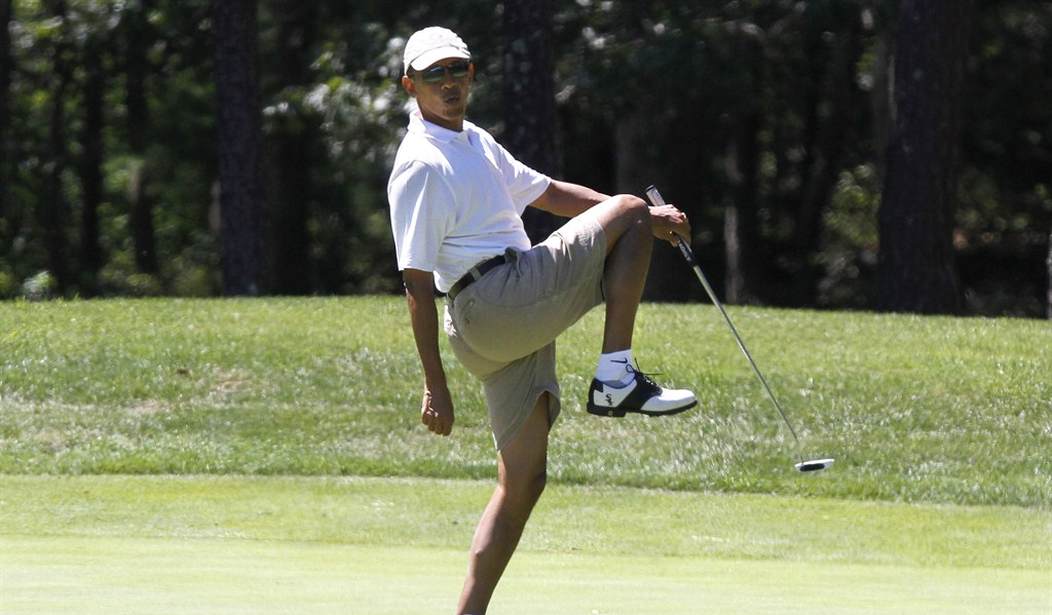For the moment at least, the party's situation is little changed from November 2012, when it could not beat a president with an unemployment rate of 7.8 percent. Today, it's common for Republicans to blame Mitt Romney for that loss. Of course it's true that Romney bears a good deal of responsibility; he was (as some of his rivals argued) uniquely unqualified to attack Obama over Obamacare, and his entrepreneur-based economic appeal frequently seemed to hit the wrong note.
But Romney's was not the only race Republicans lost in 2012. If the fault were all his, what accounts for the GOP losing Senate races it should have won in Montana and North Dakota? What accounts for Republicans losing a special election like the 2011 race in New York's 26th Congressional District at a time when the economy was undeniably terrible?
It takes a long time to get over big defeats, and Republicans aren't anywhere near getting over 2012. But now, as new battles with Obama loom, some Republicans are trying to come to grips with the dimensions of their defeat, and with what they have to do to get back into the game.
Specifically, they're laboring to come up with policies that will both help the economy and capitalize on Obama's vulnerabilities. Of course they'll continue to hit Obama on jobs, on an economic "recovery" that has left millions behind, and on the dislocations of Obamacare. But GOP strategists increasingly concede that taking whacks at Obama is not enough; they have to base their campaign on a revitalized economic agenda. What that agenda will be, however, is another matter.
Recommended
Right now, they're considering pushing four issues: tax reform, energy, government spending, and health care. All except health care have been GOP staples in the past, so the challenge will be to craft Republican proposals that break new ground and are clearly directed toward stimulating economic activity, toward spurring growth that the Obama economy has been so desperately lacking. The danger is that the new agenda will come out sounding like Republican same-old, same-old.
Another danger is that the Republicans won't be able to agree among themselves on what to stress. "Can you tell me the position of the Republican party in terms of what tax reform they want to put in place?" asks one party insider. "Are we ready to take a vote in mid-September on tax reform?" The answer, of course, is no. And the same holds true for other issues.
So unless Republicans 1) unite behind a single proposal in each area; 2) make clear that proposal will improve the economic lot of most Americans and not just some specific group, like Republican donors; and 3) push those proposals with single-minded intensity, the GOP could be in for another difficult campaign.
Doing all those things is particularly hard for a party out of power. Who is the leader who will bring Republicans together behind a specific plan? There isn't one. Not John Boehner, not Mitch McConnell, and not anyone in the Christie-Paul-Rubio-Cruz-Jindal-Santorum-Ryan-Bush-Walker 2016 presidential field. No individual leads today's Republican party, which means no individual can go head-to-head against the president.
In the months leading up to the 2012 election, it was conventional wisdom among many Republicans that no president could be re-elected with an unemployment rate above 7.2 percent. (The figure was used because that was the rate when Ronald Reagan was re-elected in 1984; before and after, going back to the New Deal, no chief executive had won re-election with an unemployment rate anywhere close). But Obama won handily.
Now there are indications some Republicans might be falling back into their old 2012 mindset, viewing the 2014 elections as a referendum on the president's continuing poor economic performance. But unhappiness with Obama is just the necessary predicate for convincing voters that the Republican plan is better. When there is a plan.
The opportunity is there. "This is where the 35 percent matters," says the GOP strategist. "That means you've got almost two-thirds of the electorate that wants to hear something different. When that number is so high, people are really paying attention."
Voters are listening. The question is whether Republicans will have anything to tell them.

























Join the conversation as a VIP Member